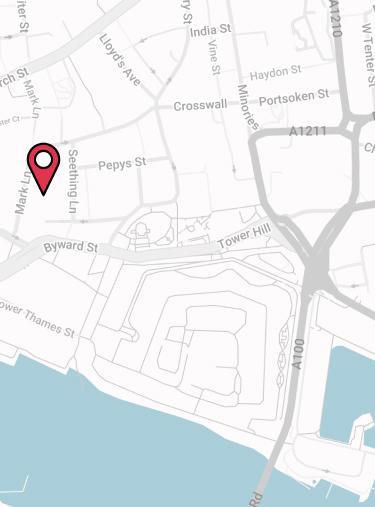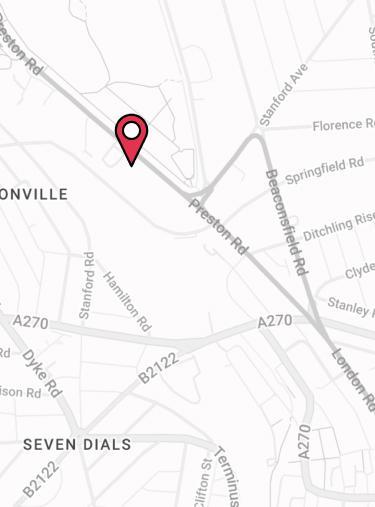
Looking for insurance to protect your income? You’re in the right place. Sick Pay Insurance aims to provide you with financial support if you ever need to take time off work because of your health.
In this guide, we’ll explain how Sick Pay Insurance works, your policy options, and how much it costs each month.
What Is Sick Pay Insurance?
Sick Pay Insurance, also known as Accident and Sickness Insurance, is a policy that covers a percentage of your regular income if you’re unable to work due to illness or injury.
It ensures you can cover your essential outgoings, such as your mortgage/rent payments, utility bills, and groceries. Plus, the payout is tax-free, so you’ll get the full amount you’re ensured for.
Key aspects:
- Protects between 50% and 70% of your gross monthly income
- Offers financial security to you and your family during difficult times
- Gives you peace of mind so you can focus on getting better.
Sick Pay Insurance is most commonly known as Income Protection. These product names are used interchangeably.
Why Is Private Sick Pay Important?
What would you do if you suddenly couldn’t work? How would you pay the bills? Most of us would suffer a significant loss of earnings if we had to take time off work. And with money worries being a leading cause of stress, it’s crucial to think about giving yourself some financial security.
Some people receive sick pay from their employer for a set period, which then switches to Statutory Sick Pay. But if you needed longer off work (say more than six months), how would you cover your living expenses? That’s where Private Sick Pay comes in.

If you’re self-employed, Sick Leave Insurance is even more important as you’ll have little or no employer sick pay. A policy gives you peace of mind that if you need to stop working for a while, money won’t be an issue and you can focus on getting better.
Danny Gill
Independent Protection Specialist
How Does Sick Pay Insurance Work?
You pay a monthly premium to have your Sick Leave Insurance policy in place. If you become ill or suffer an accident, you can then make a claim, waiting for your chosen “deferred period” to pass before you start to receive your monthly payout. These payments will continue until you either return to work, reach the policy’s cease age, or retire.
What To Consider When Buying UK Sick Pay Insurance
After comparing providers and finding the right insurer for your circumstances, you’ll have a variety of policy options to choose from when setting up your Sick Pay Insurance. These factors affect your coverage, along with the cost of your policy.
Benefit Amount
The benefit amount is the monthly payment you’ll receive if you can’t work. Sick Pay Insurance allows you to protect up to 70% of your gross earnings, depending on the insurer. How much cover you’ll need will entirely depend on your situation and the cost of your outgoings.
Don’t simply go for the biggest amount just because it’s available. Instead, work out how much your monthly outgoings are on average and align your coverage to that sum. That way, you won’t be paying bigger premiums for unnecessary coverage.
Policy Length
When you set up Sick Pay Insurance, you’ll choose an end date for your policy, known as the “policy cease age”. You should align this date with your expected retirement, as you’re likely to have access to other income streams by this time, such as your pension.
Most Sick Pay Insurance providers offer cease ages all the way up to 70.
Payout Length
This refers to how long your insurance will pay out should you need to make a claim. The payout length will depend on the type of the policy you choose. Short-Term Income Protection cover only pays out for up to five years per claim, while long-term policies pay out for as long as possible (often until retirement age).
Long-term cover is more comprehensive, but it costs more than short-term options.
Deferred Period
The deferred period is the length of time you have to wait before your policy pays out. It’s also known as a waiting period.
Insurers offer deferred periods from as short as one day to as long as 52 weeks. While it can be tempting to go for an immediate payout, it’ll be more expensive. You should match up with any company sick pay or savings you can rely on the meantime. For example, if you have one month’s worth of savings or sick pay from work, choosing a four week deferred period will give you full cover at the best price.
Indexation
There’s a risk of your payout losing buying power over time, so you have the option to index-link your policy to ensure the benefit aligns with inflation. This is a great policy option, as it ensures the payout you get isn’t eroded by inflation over time.
Premium Type
When setting up Sick Pay Cover, you’ll need to pick a type of premium. You have two types to consider:
- Reviewable premiums
The insurer is able to “review” premiums as they see fit. For example, your premiums could go up if the insurer has received a high number of claims. Reviewable premiums are cheaper at the outset, but they can become a lot more expensive over time - Guaranteed premiums
Guaranteed premiums cannot change over time. Your premium is fixed from the outset of the policy. While they start out more expensive than reviewable, they often work out cheaper during a long-term policy as they can’t rise over time.
Some products that include Payment Protection Insurance (PPI) offer cover with reviewable premiums. The insurer can increase premiums as it sees fit, which could make your cover unaffordable in the future.
How Do I Make A Claim?
Claiming on your Sick Pay Insurance is fairly straightforward. If you become ill and will be out of work for longer than your deferred period, you’ll need to let your insurer know as soon as possible.
You’ll have to submit a claims form either online or by post, including all relevant information about your health, including supporting medical evidence. The insurer will then assess your claim.
When you buy insurance through Drewberry, our specialists will help you through the claims process. We’ll do the heavy lifting while you focus on getting better.
What Does Private Sick Pay Insurance Cover?
Sick Pay Insurance covers you should you develop an illness or suffer an injury that prevents you from working. Your policy will cover for you:
- Accidents or bodily injuries
- Periods of sickness or illness that results in sick leave at work.
Incapacity Cover
Before you can successfully claim, an insurer will need to assess your capability to work. To measure this, insurers use several definitions of “incapacity”, which will be set out at the start of your policy. There are a few different definitions to choose from when you set up Sickness Insurance:
- Own occupation (our most recommended)
“Own occupation” means you’ll get your insurance payout as long as your injury or illness prevents you from doing your specific work duties. For example, a massage therapist who injures their hand wouldn’t be able to carry out treatments, and could therefore make a claim under this definition - Suited occupation
To claim “suited occupation”, you must be unable to do your current job or any other role where you have experience or skills. Let’s take the massage therapist from the above example: their hand injury might mean they can’t carry out treatments, but they may have the skills and experience for a different role. In this case, they wouldn’t be able to claim under the “suited occupation” definition - Any occupation
You can only claim under this definition if you reach a specific level of being “unfit to work” – meaning you’re unable to work in any job or perform a set number of tasks in basic roles. This is the most difficult incapacity definition to claim on.
Own occupation offers the best likelihood of a successful claim, as the insurer will pay out for anything that medically stops you from doing your specific job role. The other definitions make it harder for you to claim, as you could be deemed fit for another role – despite your health conditions.
Additional Benefits And Support Services
Alongside your core Sick Pay cover, most of the UK’s Income Protection providers offer a great range of extra benefits for you to use without having to make a claim. These mostly free services are designed to support your health and wellbeing, tackling issues before they become more serious.
Popular benefits include:
- 24/7 Remote GP services
- Medical helplines
- Physiotherapy sessions, either online or in person
- Mental health counselling sessions
- Hundreds of retail discounts
- Discounted gym memberships
- Cash benefits for hospital stays
- Second medical opinion services.
Not only are these often free to access, your immediate family members (such as your spouse/civil partner, and dependent children) can also utilise these.
What Doesn’t Sick Pay Insurance Cover?
Like most insurance policies, Sick Pay Insurance has a few general exclusions. These apply to all policyholders, regardless of their situation.
Your policy won’t pay out for accidents or sickness caused by:
- Self harm
- Substance abuse. E.g. because of alcohol or drugs
- Involvement in criminal activity
- Foreign travel to areas of active internal conflict, high terrorism risk, political instability or countries the Foreign and Commonwealth Office (FCO) has advised against visiting.
It also won’t cover:
- Pregnancy and childbirth
- HIV or AIDS
- Failure to follow medical advice.
Does Sick Pay Insurance Cover Pre-Existing Conditions?
When setting up your Sick Pay Insurance, you’ll be asked to declare any pre-existing medical conditions you have, or have suffered from in the past. Whether these are covered depends on the insurer you go to.
Each Sick Pay Cover provider has their own view of covering a pre-existing medical condition. They may:
- Cover the condition and apply standard terms (you won’t face any difference in policy price or terms)
- Cover the condition for a higher premium
- Exclude the condition, but set a date to review your cover
- Exclude it entirely (potentially with a premium discount to compensate).

If you’re worried about how an existing health condition may impact your policy, it’s best to discuss your options with a specialist. We have direct access to the underwriters at the top UK insurers, and can help you get the best possible terms for your situation. Call us on 02084327333 or email help@drewberry.co.uk.
Samantha Haffenden-Angear
Independent Protection Specialist
Income Protection Client Stories
Do I Need Sick Pay Insurance?
Whether you need Private Sick Pay Insurance comes down to your personal circumstances. To help you decide, ask yourself:
- How would your finances change if you took time off work? How would you cover your essential outgoings?
- What (if any) employer sick pay are you entitled to?
- Do you have any other means of financial support? How long would that money last?
The Risk Of Accident Or Injury
While many of us don’t want to think about the possibility of suffering an accident or developing an illness, the reality is, it can happen to anyone at any time. The more prepared you are for any eventuality, the better.
The stats speak for themselves:
- Over 2.5 million people of working age were out of work due to long-term health conditions from March to May 2023
- 1.35 million people stated a musculoskeletal health condition for their inactivity
- Over 850,000 people were not working due to mental health issues
- While over 670,000 people had chest or breathing problems.
The risk is always higher than you think, which is why Sick Pay Insurance is an important policy to have in place – providing financial support when you need it most.
Alternatives To Sick Pay Insurance
When weighing up whether to take out Sick Pay Insurance, it’s worth considering the alternatives, and how you’d cope financially if you had to rely on these options.
- Savings
If you’ve got savings to fall back on, then this can support you during time off. Although this depends on the amount of money you have tucked away. For many UK adults, it’s not always possible to have emergency funds to dip into. In fact, 26% of people told us their current savings would keep them afloat for less than a month. - Government Support
There’s Employment and Support Allowance (ESA), that provides up to £92.05 a week if you’re aged 25 or above. Considering the average UK monthly expenditure is £2,873 (based on 2.3 people per household), it’s highly unlikely ESA will cover your outgoings. There are other government benefits available, but the amount they pay out is often far below what you’d need to maintain your current standard of living.
- Company Sick Pay
Some employers offer full sick pay for a number of weeks or months. However, the majority of companies aren’t as generous. Many stick to Statutory Sick Pay, which is just £118.75 a week for up to 28 weeks. Check your contract carefully – would this be enough to live on without any other income?
Sick Pay Insurance For Self-Employed
If you’re self-employed, it’s a completely different situation. It’s likely you don’t receive any sick pay since you’re not associated with a traditional employer. In this situation, Self-Employed Sick Pay Insurance is essential.
It’s this exact reason why self-employed finance blogger Mrs Mummypenny decided to buy Sick Pay Insurance, securing peace of mind for herself and her family.
How Much Does Sick Pay Insurance Cost?
The cost of Sick Pay Insurance depends on a variety of factors. Some of which you can’t control, such as your age. While others you can adjust to reduce costs.
Insurers will take lots of things into account before offering you cover, including your medical history and what you do for work.
Using our Income Protection online quote tool, we’ve got some cost examples for you. These demonstrate how different factors influence the cost of your policy.
To show you cost differences, these monthly quotes are assuming the person looking for cover:
- Is healthy and works in a low-risk office job
- Is 35 years old
- Wants a monthly benefit of £1,500
- Wants an 8-week deferred period
- Wants guaranteed premiums
- Needs long-term cover with a cease age of 65
- Needs a comprehensive policy.
Provider
Each Sick Pay cover provider will charge a different monthly premium. This is because each insurer has its own appetite for risk and can offer different services and benefits. So it’s always good to shop around when looking for the most suitable cover.
| Provider Cost Comparison | |
|---|---|
 |
 |
| £20.08 | £29.22 |
Quotes correct as of October 2025
Your Age
The older you are at the start of your policy, the higher your premiums. This is due to the increased risk of sickness or injury as you age.
Here are some monthly premium examples from insurer British Friendly:
| Age Cost Comparison | ||
|---|---|---|
| 25 years old | 35 years old | 45 years old |
| £22.07 | £26.81 | £47.76 |
Quotes correct as of October 2025
Smoker Status
Smokers are more at risk of developing a health condition, so some insurers will increase your premiums if you smoke.
Here’s an example of the difference in monthly cost with insurer Holloway Friendly:
| Smoking Cost Comparison | |
|---|---|
| Non-smoker 🚭 | Smoker 🚬 |
| £23.72 | £35.58 |
Quotes correct as of October 2025
If you use vapes or nicotine patches, you’re still classed as a smoker by most insurers. If you consume any nicotine products, it’s best to speak to a specialist adviser before buying an Income Protection policy. We’ll find providers that offer the most competitive premiums for your smoker status.
Deferred Period
Insurers typically offer deferred periods of 4, 8, 13, 26, or 52 weeks. The longer this period, the cheaper your premiums because insurers don’t have to pay out immediately.
Here are some monthly premium examples from insurer Vitality:
| Deferred Period Cost Comparison | ||
|---|---|---|
| 4 weeks | 8 weeks | 13 weeks |
| £36.36 | £25.42 | £19.83 |
Quotes correct as of October 2025
Occupation
Some jobs are riskier than others, with higher chances of workplace injuries. Those in manual labour roles, working at heights or with heavy machinery, for example. Compared to an office worker, the insurer faces more risk providing cover to a construction worker.
Here are some examples of monthly Sick Pay Insurance costs from insurer Legal & General:
| Occupation Cost Comparison | ||
|---|---|---|
| Office administrator | Retail cashier | Builder |
| £33.83 | £43.91 | £76.76 |
Quotes accurate as of October 2025
Which Sick Pay Insurance Providers Pay the Most Claims?
The vast majority of Income Protection providers now publish their claims statistics, which is a real step forward in building trust.
Each year, the Association of British Insurers (ABI) publishes average payout rate statistics from all insurers. Below, you’ll find the most recent payout rates from all the UK Income Protection insurers.
Insurer | 2022 | 2023 | 2024 |
|---|---|---|---|
Zurich | 85% | N/A | 95.8% |
Vitality | 96.5% | 95.4% | 91.9% |
Cirencester Friendly | 95.4% | 95.8% | 95.8% |
Holloway Friendly | 93.4% | 86% | 88.3% |
British Friendly | 90% | 89% | 86% |
Liverpool Victoria | 92% | 92% | 90% |
The Exeter | 92% | 96% | 93% |
Aviva | 92.5% | 90.1% | 92% |
Legal & General | 82.2% | 80% | 84% |
Claims payout statistics shouldn’t be used to make an exact comparison of insurers, but rather to get a general understanding of payout rates across insurers as a whole.
Buying Sick Pay Insurance Via A Limited Company
If you’re a director, you can buy Sick Pay Insurance through your limited company. This is a specialist Company Director Income Protection policy, which is paid for and owed by your business.
Many business-owners choose this option as it offers tax savings. It also means your policy isn’t tied to you as an individual, but to your business. In the event of a successful claim, your insurer pays the benefit into your business account. You can then distribute the payment in a tax-efficient manner with the support of your accountant.
It takes a few extra steps to set up, which is why it’s important to get advice. Our team of specialist advisers will help you find the right policy for your needs and ensure it’s set up correctly. Get in touch by calling 02084327333 or email help@drewberry.co.uk.
Income Protection Product Reviews
Who Is The Best UK Sick Pay Insurance Provider?
Everyone’s situation is different, so the best Sick Pay Insurance provider for you will completely depend on your circumstances. What’s right for someone else may not be right for you, as your policy is tailored to your needs and requirements.
Each provider is also unique, so buying a policy involves matching your needs with an insurer who will address your requirements and provide the right cover.
At Drewberry, we work with a range of UK Sick Pay Insurance providers, including:
- Aviva
- British Friendly
- Cirencester Friendly
- Holloway Friendly
- Legal & General
- Liverpool Victoria (LV=)
- Royal London
- Shepherds Friendly
- The Exeter
- Vitality.
It’s important to compare quotes to ensure you get the most competitive Sick Pay Insurance for your circumstances.
Our online quote comparison tool will do the hard work for you. Or if you need some help to compare providers, get in touch with us. Our team of specialist advisers is on hand to offer advice on the right policy for you. We can also answer any questions you have about Sick Pay Insurance.
Common Sick Pay Insurance Questions
Does Sick Pay Insurance cover unemployment?
No. Sick Pay Insurance is designed to pay out a monthly income if you’re unable to work because of an accident or illness. It doesn’t include unemployment cover, unless you add it as an additional option. There are some UK insurers who offer this, but not every provider will.
How is Sick Pay Insurance taxed?
As you’re buying the policy for yourself, the monthly premiums are deducted from your net income. This means any payment you receive from your policy is tax-free.
The taxation rules only change if you buy a policy through your limited company as a business. Or if you’re an employer offering a Group Income Protection scheme to your staff.
What’s the difference between sick pay and Sick Pay Insurance?
Sick pay is what you’ll receive from an employer if you have to take time off work due to ill health. Some companies have their own sick pay policy, offering staff a certain period of full pay (six months, for example). Once this ends, or if your employer doesn’t offer sick pay, you’ll be placed on Statutory Sick Pay.
Sick Pay Insurance is designed to cover a percentage of your monthly income if you’re unable to work. This differs from sick pay, as it’s an insurance policy you pay for. It helps to provide a financial safety net should you not receive any sick pay or the amount you’re entitled to isn’t sufficient.
What’s the difference between Sick Pay Insurance and Income Protection?
Sick Pay Insurance and Income Protection are the same product. While the names are used interchangeably, they refer to the same thing.
Is Sick Pay Insurance worth it for self-employed workers?
Sick Pay Insurance is arguably more important if you’re self-employed, as you won’t benefit from the sick pay that employed people get. Taking time off work is bound to cause financial difficulty, so taking out a policy gives you peace of mind that if you need to stop working for a while, money won’t be an issue and you can focus on getting better.
Compare Sick Pay Insurance Quotes And Get Specialist Advice
Sick Pay Insurance offers something truly valuable: peace of mind. Given the complexities of taking out the best cover, particularly for the self employed, we recommend speaking to our team of specialists. Our advice is completely free, and you won’t pay us a penny for setting up your policy.
Call us on 02084327333 or email help@drewberry.co.uk to chat through your options with one of our friendly specialists.
Why Speak to Us?
When it comes to protecting yourself and your finances, you deserve first-class service. Here’s why you should talk to us:
- There’s no fee for our service
- We’re an award-winning independent insurance broker, working with the leading UK insurers
- You’ll speak to a dedicated specialist from start to finish
- 4094 and growing independent client reviews rating us at 4.92 / 5
- Claims support when you need it most
- We’re authorised and regulated by the Financial Conduct Authority. Find us on the financial services register.
Contact Us
125-135 Preston Road
Brighton
BN1 6AF
Cookies
Drewberry™ uses cookies to offer you the best experience online. By continuing to use our website you agree to the use of cookies including for ad personalization.
If you would like to know more about cookies and how to manage them please view our privacy & cookie policy.






















